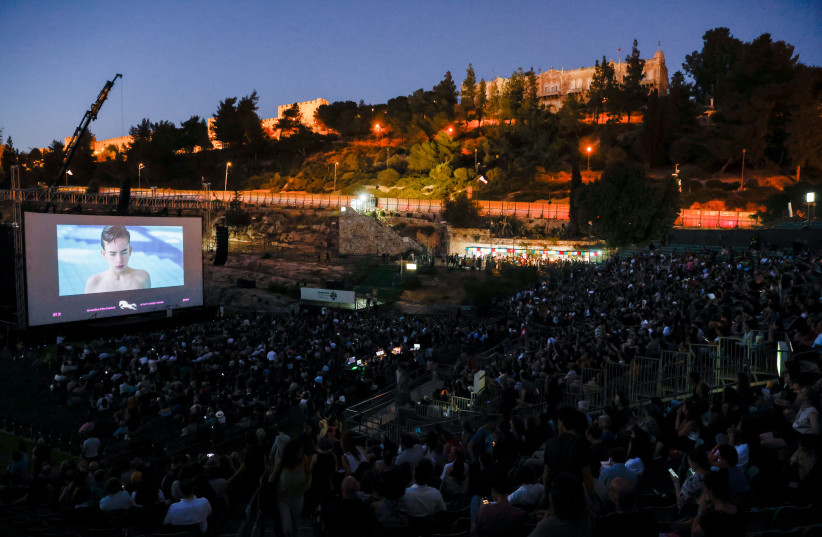Amy Kronish: Bringing Israeli cinema into the limelight
Jerusalemite of the week: Understanding trends in Israeli cinema with Amy Kronish.


By that logic, Israeli films can speak volumes about Israeli society, and Amy Kronish has seen more Israeli films than almost anyone.
Living in Jerusalem since 1979, Kronish has built a reputation as an expert in the cinema of the Jewish state, working for films for years, as well as giving lectures and writing two books, World Cinema: Israel; and Israeli Film: A Reference Guide.
In addition to working at archiving films and curating them, Kronish has worked in the realm of coexistence through film, having organized a Coexistence Film Festival for the Jerusalem International YMCA.
But how will current events shape Israeli cinema going forward?

Tell me about yourself and how you got to Israel.
My husband, Ron, and I came to Jerusalem in the 1970s, at a time when we were very much impressed by the socialism (the Labor Party was still strong at that time), the pioneering spirit, the lack of consumerism, and the meaningful lifestyle that living in a Jewish state could provide.Many things have changed since that time, but we still feel committed to the lives that we have built here.
How did you get into studying, working with, and lecturing about films?
My first job, in 1979, was at the Jerusalem Cinematheque, where I was hired to coordinate everything having to do with Jewish film. Later, I became the curator of Jewish film, and my job expanded to include the archiving of Israeli film as well.Since that time, I have written two books on Israeli film and, according to my children, have seen more Israeli films (both the good ones and the not-so-good ones) than just about anybody you know!
What sort of work have you done for the YMCA?
When I worked for the Jerusalem International YMCA, I directed a department of coexistence activities, which focused on cultural activities. We ran a major Coexistence Film Festival (in cooperation with Search for Common Ground) and a wonderfully successful Coexistence Theater Festival, which brought together audiences from both east and west Jerusalem.What makes Israeli cinema unique?
Filmmaking in Israel is a contemporary cultural form of expression and also a political and social expression, reflecting more than the personal point of view of each filmmaker and producer and providing a commentary on social trends, historical challenges, and societal issues.Although films can be considered as individual pieces of work, they reflect an understanding of Israeli society which can be garnered through an analysis of the subject matter, issues, and styles of expression.
What are, in your opinion, the best Israeli films of all time?
There are a lot of really great Israeli films. Some of my favorites include Ayelet Menachemi’s Noodle; Rafi Bukaee’s Avanti Popolo; Eytan Fox’s Walk on Water; and Michal Bat Adam’s Aya: Imagined Autobiography.Do you think current events (political instability, war) will have a profound or lasting impact on Israeli cinema going forward?
Since its inception, Israeli cinema has been preoccupied with issues of the hardships of a situation of ongoing war, problems of Jewish-Arab relations, and the major survival issues of the state. These are issues that will continue to be reflected in the creative works of contemporary filmmakers.■





